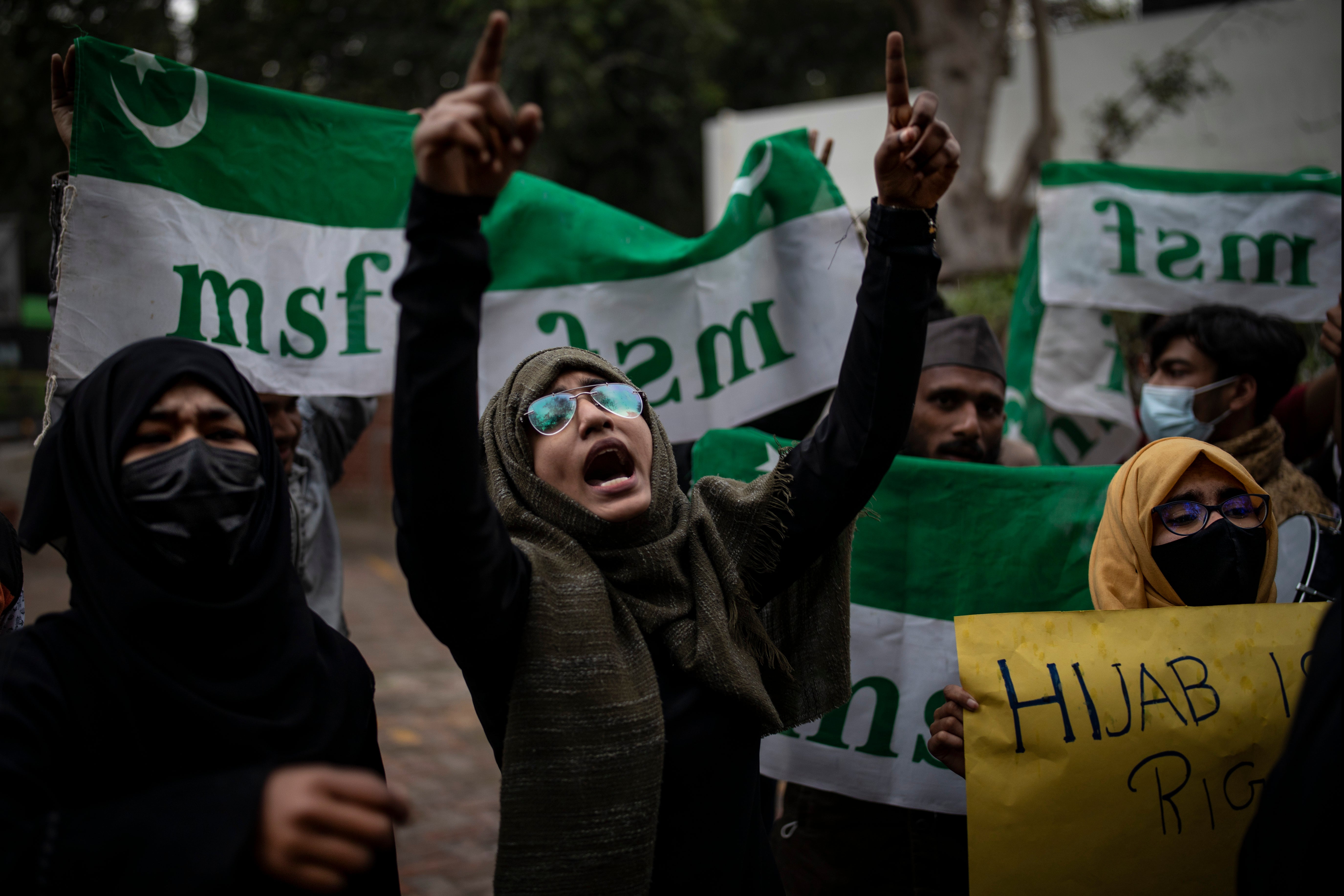India’s Supreme Court refers hijab case to chief justice after split verdict
‘It is ultimately a matter of choice, nothing more, nothing else’

The ruling over a lawsuit challenging the ban on Muslim students wearing headscarves in schools and colleges has been referred to the chief justice of India after two Supreme Court judges gave a split verdict with opposing views.
One judge upheld the ban by Karnataka high court in March while another said the order was erroneous and education is a priority.
The two-judge bench agreed that “there is a divergence of opinion” and recommended that the chief justice of India constitute a three-judge bench to deliver the verdict.
The latest legal ruling has failed to put a stop to almost a 10-month-long debacle in India that has dominated the news headlines and public opinions as the practice of covering heads has gripped global attention with sweeping anti-hijab protests in Iran.
Women’s rights activists have demanded that women should be allowed to exercise choice in the matter, while opponents of hijab say education institutions should be “religion-neutral”.
On Thursday, the decision by Justice Hemant Gupta, who heads the two-judge bench, was to uphold the Karnataka high court ban as he raised 11 questions, saying the answer according to him is “against the appellant”.
His decision was widely expected since he earlier asked a lawyer whether the “right to dress will include right to undress also?”
Justice Sudhanshu Dhulia said venturing into essential religious practice by Karnataka high court was not needed and the state high court had taken the wrong way.
“It was just a question of choice. One thing which was topmost for me was the education of a... child,” he said.
“It is ultimately a matter of choice, nothing more, nothing else,” added Justice Dhulia.
The row began early this year when a government-run school in the southern state of Karnataka’s Udupi district where the ruling Bharatiya Janata Party is in power barred students wearing hijabs from entering classrooms.
The college administration said they asked the girls to remove the head covering inside the classroom while allowing them to wear it around the campus. However, the girls said they should be allowed to wear the head covering in classrooms as well as there were male teachers.
It prompted other institutions to also ban girls from wearing hijab in classrooms, triggering protests by Muslims who said they were being deprived of their fundamental rights to education and religion.
It also led to counter-protests by Hindu students who wore saffron shawls, a colour favoured by Hindu nationalists, and controversial statements were made from people of both sides.
The protests forced the Karnataka government to shut down high schools and colleges for some days as they feared violence.
The ban by schools was then challenged by Muslim women in court who said prohibiting hijab is against the Indian constitution which has given people the right to dress as they want and their religious identity.
The extensive hearings in the case witnessed almost two dozen lawyers on behalf of students and Islamic clerics arguing that preventing Muslim girls from wearing the hijab in the classroom would jeopardise their educations since they might stop attending school
The state government, however, claimed that its order banning the hijab in classrooms was “religion-neutral.” The Karnataka state ban does not extend to other Indian states the Supreme Court ruling is expected to set a precedent for the rest of the country.
Subscribe to Independent Premium to bookmark this article
Want to bookmark your favourite articles and stories to read or reference later? Start your Independent Premium subscription today.

Join our commenting forum
Join thought-provoking conversations, follow other Independent readers and see their replies